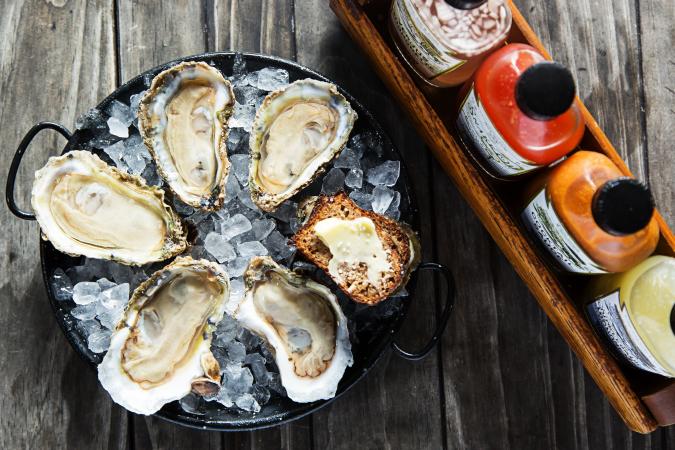A Locavore's Vision
Woodberry Kitchen is a regenerative restaurant and dining experience in Baltimore, Maryland, owned and operated by James Beard Award-winning chef Spike Gjerde. In 2007, Spike opened Woodberry with a fundamental question that continues to guide the business today, “What is the best way to feed ourselves?” Without knowing what it would entail, he began working with local growers and moving the restaurant in the direction of locally-driven cuisine.
Situated in the historic Clipper Mill building, a former 1840's brick mill, close to residential neighborhoods in northern Baltimore City, Woodberry relies on a community of over 100 regenerative farmers, artisanal producers, and local watermen to serve its guests. Farms of note include Karma Farm, Moon Valley Farm, and Third Way Farm, all of which are in Maryland. Among local makers that contribute artisanal ingredients include Keepwell Vinegar, Susquehanna Mills, and Motzi Bread.
"Spike turns the whole paradigm upside down," says Ben Wenk, a seventh-generation farmer at Three Springs Fruit Farm. "It's not so much that his restaurants use what growers are producing; it's that he exists to provide more opportunities for those farmers."
This next iteration of Woodberry will shift focus from their previous 120-seat restaurant to a newly remodeled event space. As agritourism has grown in popularity with sustainably-minded travelers lodging on working farms, Chef Gjerde hopes that Woodberry will soon be seen as a destination for discerning foodies seeking an authentic, local culinary experience.
Learn more about Woodberry Kitchen’s locavore sourcing practices in Food & Wine, or by visiting their website at woodberrykitchen.com
Regenerative & Sustainable Practices
Woodberry Kitchen started with the question, “What is the best way to feed ourselves?”, and has been led by this philosophy since it opened in 2007. Driven by an awareness that commodity agriculture was a major source of pollution in the Chesapeake Bay, Woodberry began working with growers around Baltimore/DC and moving the restaurant in the direction of a locally-driven cuisine. Today, business continues to be rooted in practices that minimize environmental degradation while maximizing returns to farmers and food producers from throughout the region. This includes:
- Source ingredients—only buy fish and shellfish from local waters; pastured beef, pork, and poultry; locally-grown and -milled small grains and cooking oils; in-house production of canned goods and other shelf-stable products; local sources of sweetness (honey, maple, sorghum); and, crucially, to exclude products of GMO/commodity/industrial monocultures.
- Make $1m+ in economic impact to regional producers by buying direct from over 100 Mid-Atlantic farms and waterways—from Moon Valley Farm to Keepwell Vinegar.
- Pay fair & equitable wages and benefits to staff, promoting pride in work, professional development, and low turnover.
- Waste-stream management which includes not only separating compostables but also oyster shells, coffee grounds, recyclables, and oil for biofuel.
- Prove that buying locally and direct as possible to the catering industry at-large (which is notoriously bad at local sourcing)
Photo Credit: Scott Suchman

